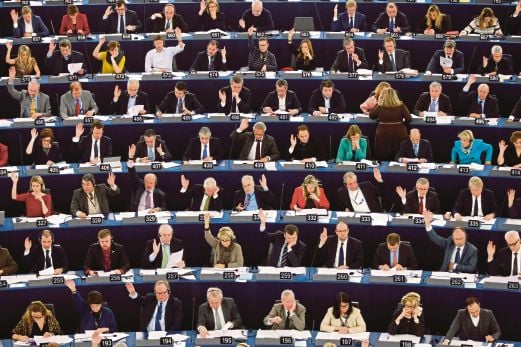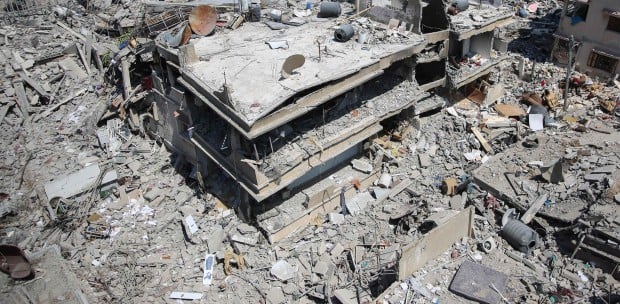THE news last week that the European Parliament had adopted to recognise the state of Palestine with 498 in favour and 88 against, was greeted with mixed reactions by the international community. On the one hand, the motion on Dec 17 in Strasbourg was non-binding in nature, placing a caveat that the recognition of Palestinian statehood was “in principle” as long as a two-state solution is achieved. There was no timeline for when the recognition would come into effect.
On the other hand, the motion was a strong message from Brussels that European Union (EU) member states should follow suit. On Oct 30, Sweden became the ninth EU member state to recognise Palestine, after Bulgaria, Cyprus, the Czech Republic, Hungary, Malta, Poland, Romania and Slovakia. None of the EU “powerhouses” (France, Germany, or the United Kingdom) have recognised Palestine, even though the British and French Parliaments have both passed resolutions calling upon their respective governments to recognise the state of Palestine. The legislative assemblies of the EU countries seem more inclined to recognise Palestine, however, with France and the UK joining Spain, Ireland, Portugal, and most recently, the Parliament of Luxembourg, on the issue of Palestinian statehood.
Sweden’s recognition of Palestine means that there are now 135 United Nations member states that accept that Palestine is a “state” with all the rights and privileges to be accorded such an entity. Sweden was one of the 138 states that, in 2012, voted in favour of a resolution upgrading Palestine to the status of a UN Non-member Observer State. The resolution was just one step in a long road for the recognition of the state of Palestine and one that began on Nov 15, 1988, with the Palestinian Declaration of Independence in Algiers, Algeria. By the end of November 1988, there were 65 countries around the globe that affirmed their recognition for Palestine, including Malaysia. Twenty years
later, in 2008, the number had only grown to 107 states that recognised Palestinian statehood.
Recognising Palestine does not necessarily mean that there will be formal diplomatic relations between the state and Palestine. In fact, of the 135 countries that have recognised Palestine, 20 do not have diplomatic relations with either the PLO, the Palestinian Authority, or Palestine itself. A number of other countries that do not recognise Palestine, on the other hand, have diplomatic relations with the Middle Eastern state. Austria and Italy, for example, accord the Palestinian ambassador in Vienna, and in Rome, the same diplomatic privileges and immunities as the other embassies in their capital.
The growing recognition of Palestine as a state comes on the heels of a number of events that would seem to lead to eventual Palestinian statehood. The first, and perhaps the catalyst to it all, was the April collapse of negotiations between Israel and Palestine. Brokered by Washington and spearheaded by US Secretary of State John Kerry, among the concessions ceded by Palestine while the talks were in full swing were the holding off of the active pursuit of international recognition by Palestine. But with this new round of peace talks effectively dead, Palestine has pressed ahead with international recognition of its statehood, both at the bilateral level as well as at the UN Security Council.
Secondly, the renewed fighting in the West Bank from June to August became particularly brutal, with rockets launched into civilian areas from both sides of the divide. By Aug 26, when a ceasefire finally took hold, more than 2,000 people had been killed and 100,000 displaced from their homes.
Another event that has contributed to the Palestinian determination for statehood in recent weeks was the death of Palestinian Minister Ziad Abu Ein on Dec 10. Autopsy reports on the minister’s death have been contradictory, with Palestinian doctors attributing the cause of his death to violence suffered, while the Israeli health ministry attributing his death to a heart condition and the minister’s own susceptibility to stress.
These events seem to have only strengthened the resolve of the Palestinian leadership into bringing to an end what is now nearly 50 years of statehood limbo. As 2014 draws to a close, members of the UN Security Council are deliberating on a draft resolution submitted by Jordan on behalf of Palestine.
This draft puts a deadline of 12 months for the end of Israeli occupation envisions a two-state solution and a return to the 1967 borders.
Whether the draft resolution will be eventually put to a vote in the council, and when, remains to be seen. But what is clear is that it is not only Palestine that has run out of patience for a solution — the rest of the world, too, has been waiting too long.





